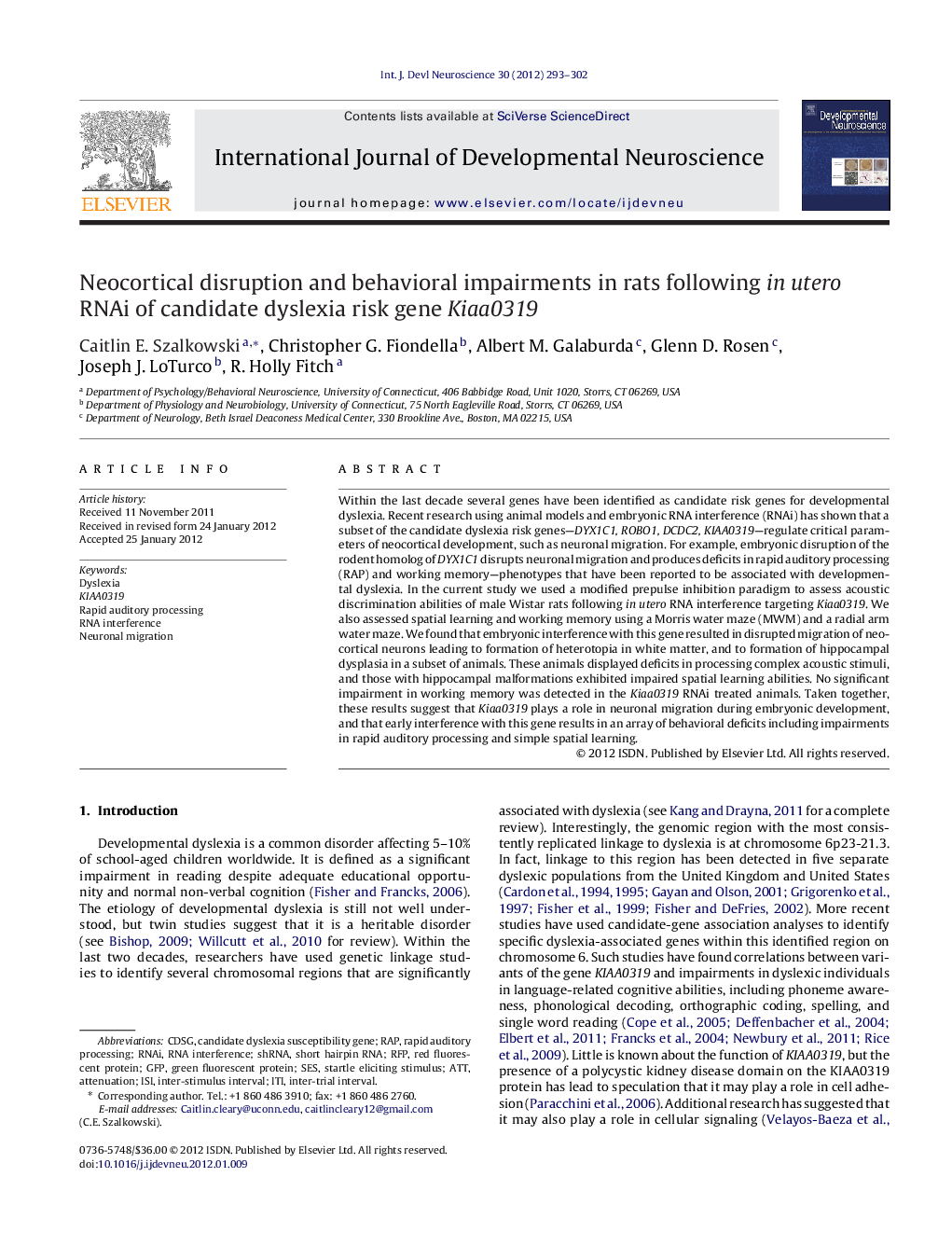| Article ID | Journal | Published Year | Pages | File Type |
|---|---|---|---|---|
| 2786265 | International Journal of Developmental Neuroscience | 2012 | 10 Pages |
Within the last decade several genes have been identified as candidate risk genes for developmental dyslexia. Recent research using animal models and embryonic RNA interference (RNAi) has shown that a subset of the candidate dyslexia risk genes—DYX1C1, ROBO1, DCDC2, KIAA0319—regulate critical parameters of neocortical development, such as neuronal migration. For example, embryonic disruption of the rodent homolog of DYX1C1 disrupts neuronal migration and produces deficits in rapid auditory processing (RAP) and working memory—phenotypes that have been reported to be associated with developmental dyslexia. In the current study we used a modified prepulse inhibition paradigm to assess acoustic discrimination abilities of male Wistar rats following in utero RNA interference targeting Kiaa0319. We also assessed spatial learning and working memory using a Morris water maze (MWM) and a radial arm water maze. We found that embryonic interference with this gene resulted in disrupted migration of neocortical neurons leading to formation of heterotopia in white matter, and to formation of hippocampal dysplasia in a subset of animals. These animals displayed deficits in processing complex acoustic stimuli, and those with hippocampal malformations exhibited impaired spatial learning abilities. No significant impairment in working memory was detected in the Kiaa0319 RNAi treated animals. Taken together, these results suggest that Kiaa0319 plays a role in neuronal migration during embryonic development, and that early interference with this gene results in an array of behavioral deficits including impairments in rapid auditory processing and simple spatial learning.
► We replicate reports that interference with Kiaa0319 disrupts neuronal migration in rodents. ► Kiaa0319 interference leads to rapid auditory processing impairments in rats. ► Kiaa0319 interference did not lead to spatial working memory deficits in rats.
